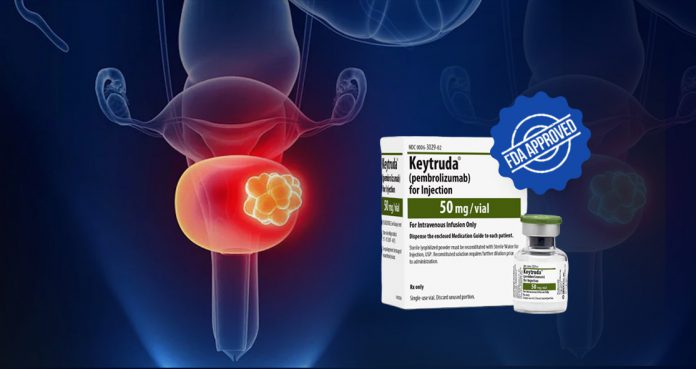The U.S. Food and Drug Administration (FDA) approved pembrolizumab (Keytruda) for the treatment of Bacillus Calmette-Guerin (BCG) – unresponsive, high-risk, non-muscle invasive bladder cancer (NMIBC) in certain patients with carcinoma-in-situ (CIS).
The approval came after a 9-4 favorable vote from the FDA’s Oncologic Drugs Advisory Committee supporting the approval of the new drug application for pembrolizumab.
The FDA’s approval was based on the results from a clinical trial that enrolled patients with BCG-unresponsive, high-risk, NMIBC with CIS.
The drug was administered in 200 mg potency every 3 weeks until “unacceptable toxicity, persistent or recurrent high-risk NMIBC, or disease progression.”
The disease was assessed every 12 weeks. The researchers of the trial said those who did not have disease progression could receive the drug for up to 2 years.
The primary outcome measures were CR, urine cytology, and computed tomography (CT) urography imaging, and duration of response.
Ninety-seven patients treated with pembrolizumab had more than 41 percent of complete response rate and a median duration of complete response of 16.2 months. In addition, 48 percent of patients maintained the drug response for over a year.
The most common adverse effects of the drug were fatigue, diarrhea, rash, itching, muscle pain, blood in urine, cough, nausea, joint pain, constipation, urinary tract infection, edema, nasopharyngitis, and hypothyroidism. The FDA recommended one dose of 200 mg pembrolizumab every 3 weeks.





















